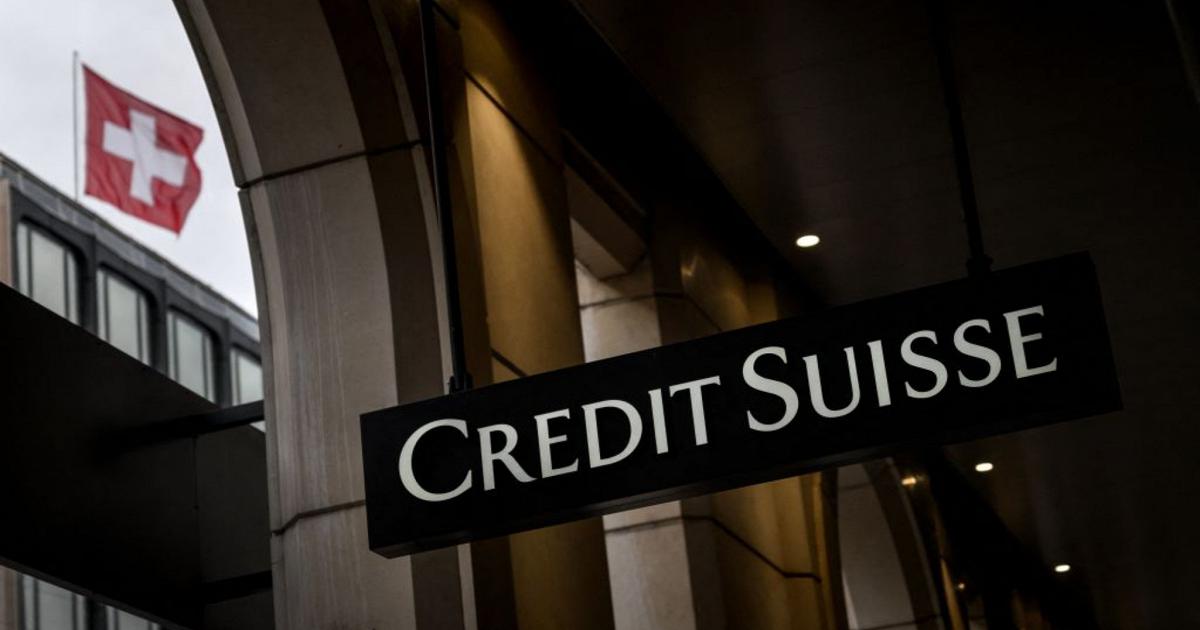07:33 March 16
Swiss financial authorities: "We will provide liquidity if necessary"
FINMA (the Swiss Financial Market Supervisory Authority) and the Swiss Central Bank immediately declared the willingness of the monetary authorities to provide credit lines to the disaster-stricken institution. Overnight, Credit Suisse itself revealed that it was ready to borrow up to 50 billion Swiss francs, or about $54 billion, from the Central Bank.
01:15 March 16
Statements by Saudi National Bank (SNB), a blow to the heart for investors already worried
The Arab shareholder's statements struck at the heart of investors who were already worried about the risk of contagion following the failure of US bank SVB. "It seems that there are more and more investors worried," Finalto analyst Neil Wilson said of the tensions in the markets. But if Credit Suisse were to face "existential problems," then "we would be faced with something of a whole other dimension. It's really too important to let go," he said. Unlike SVB, Credit Suisse is one of 30 banks in the world considered too big to fail, which imposes stricter rules on it to withstand the shock in the event of a challenge.
For analyst Jérémie Boudinet, Head of Investment Grade Credit, La Française AM, Credit Suisse is one of the few banks really at risk of contagion after the collapse of SVB, precisely because of its fragility that is no longer recent: "The price of its shares is at an all-time low and since the beginning of 2022 it has left around 70% of its value on the ground" , the expert wrote in a note, adding that "the coming months will, therefore, be fundamental for Credit Suisse, whose primary need is to stabilize its deposit base, even at the cost of profitability, already severely compromised. It is conceivable that a division of the Bank's activities could lead to the sale of some of them, such as the partial or total sale of the Investment Banking activities and the maintenance, instead, of the Swiss retail branch as well as part of the global Wealth Management business. However, we believe this hypothesis is linked to the Bank's ability to counteract cash outflows in the short and medium term".
07:32 March 16
Eurogroup President: "Acceleration on banking union is essential"
The collapse of the Silicon Valley Bank in the United States "underlines the importance of Europe continuing to make progress on the banking union". Paschal Donohoe, president of the Eurogroup, the coordination of eurozone finance ministers, told the Financial Times. Speaking after Credit Suisse shares plummeted, Donohoe said that "none of us can ever be absolutely sure where the next risk might come from." "The biggest antidote" is to speed up work to strengthen EU rules for dealing with insolvent creditors.
07:32 March 16
ECB examines exposure of banks across Europe to Credit Suisse
The tension is not sparing monetary institutions: the ECB is asking banks across Europe to disclose their exposure to Credit Suisse, several sources said, confirming rumors circulating in the media. The request also concerns Italian institutions under the supervision of Frankfurt.
00:30 March 16
US Treasury monitors US banks' exposure to Credit Suisse
The concern has involved American markets already under stress over the failure of SVB. The US Treasury Department is in contact with counterparties and is closely monitoring the situation with Credit Suisse. The department is also monitoring U.S. banks' exposure to Credit Suisse, a department spokesman said.
01:00 March 16
Collapse of European stock markets, lost 355 billion of capitalization
For European stock markets overwhelmed by the collapse of Credit Suisse, it was a deep red Wednesday. The Old Continent stock markets have sent 355 billion in terms of capitalization up in smoke. Among the individual lists, Frankfurt lost 3.27% (Dax 14,735 points), London 3.83% (Ftse 100 7,344 points), Paris 3.58% (Cac 40 at 6,885 points).
The spread between BTP and Bund closed sharply higher at 198 basis points compared to 185 points at the opening after the collapse of Credit Suisse. The 4-year rate fell to 108.4% from 318.<>% at the opening. According to the Wall Street Journal, ECB officials contacted supervised banks to inquire about their possible financial exposure to Credit Suisse.

